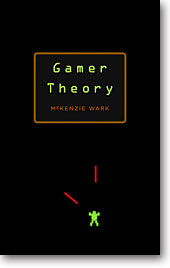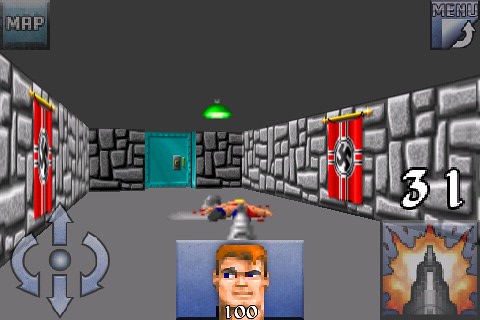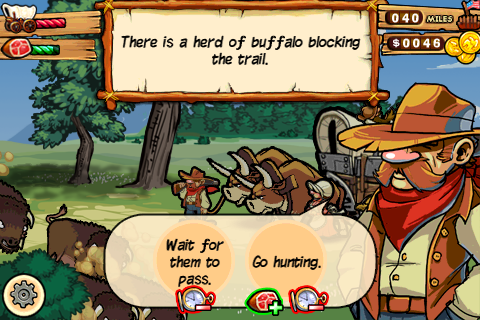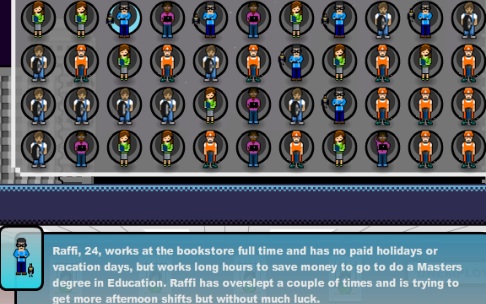May
18
2009
 In Episode 021 we’re joined by Leigh Alexander of Gamasutra, Kotaku, and Sexy Videogameland. We were excited to talk with Leigh about the impact of social networking technologies on game development and coverage, authorial control and community involvement, as well as Twitter and N’Gai Croal’s WordFu score. Thanks to Leigh for taking the time to join us, and thanks to you for listening.
In Episode 021 we’re joined by Leigh Alexander of Gamasutra, Kotaku, and Sexy Videogameland. We were excited to talk with Leigh about the impact of social networking technologies on game development and coverage, authorial control and community involvement, as well as Twitter and N’Gai Croal’s WordFu score. Thanks to Leigh for taking the time to join us, and thanks to you for listening.
2 comments | posted in podcasts
Apr
28
2009
 I was invited to appear as a guest on Episode 11 of the excellent Big Red Potion podcast. Friends of FWR Sinan Kubba and Joseph DeLia are the normal hosts, and Jennifer Allen also appeared as a guest. We settle in for a nice chat on how games age, parallels and differences between aging games and other forms of media, and some issues associated with archivism and access to the gaming corpus. I had a blast recording it and I encourage everyone to subscribe to their feed. Thanks to all involved with the podcast, and thanks to you for listening.
I was invited to appear as a guest on Episode 11 of the excellent Big Red Potion podcast. Friends of FWR Sinan Kubba and Joseph DeLia are the normal hosts, and Jennifer Allen also appeared as a guest. We settle in for a nice chat on how games age, parallels and differences between aging games and other forms of media, and some issues associated with archivism and access to the gaming corpus. I had a blast recording it and I encourage everyone to subscribe to their feed. Thanks to all involved with the podcast, and thanks to you for listening.
no comments | posted in blog posts
Apr
28
2009
Just making a quick plug here for the brand new Critical Distance blog and podcast. Critical Distance isn’t another aggregator for games coverage, but instead offers up insightful criticism of the coverage itself. If you enjoy and care about the kind of conversations we have on FWR, give Critical Distance a listen.
no comments | posted in blog posts
Apr
18
2009
 In our second Book Club episode we are delighted to be joined by McKenzie Wark to discuss his networked book Gamer Theory. In our conversation we explore the book’s genesis as an outcropping of Wark’s influential 2004 offering A Hacker Manifesto; its unique gestation as an online text at the Future of the Book; the connections between reading + play and writing + design; and how agon is at the center of the banking crisis and resultant New Depression economy. We also manage to work in a few of the questions you sent us, so make sure to listen carefully for your glorious No-Prize when we call your name.
In our second Book Club episode we are delighted to be joined by McKenzie Wark to discuss his networked book Gamer Theory. In our conversation we explore the book’s genesis as an outcropping of Wark’s influential 2004 offering A Hacker Manifesto; its unique gestation as an online text at the Future of the Book; the connections between reading + play and writing + design; and how agon is at the center of the banking crisis and resultant New Depression economy. We also manage to work in a few of the questions you sent us, so make sure to listen carefully for your glorious No-Prize when we call your name.
We’d like to thank all of you who read along with us, and especially those of you who contributed comments and questions. We’ll be announcing a new selection for the club within the next few weeks, and look forward to having you join us again.
1 comment | posted in book club, podcasts
Apr
8
2009
 Continuing our focus on iPhone/iPod Touch games, Episode 019 is centered around the recent remake of Wolfenstein 3D for that platform. We talk about the history of Wolf 3D, the impact that John Carmack and id Software have had on videogames, computer networks, and Shawn’s patience. In a future episode, we’ll discuss how to install Doom on your toaster. Stay tuned.
Continuing our focus on iPhone/iPod Touch games, Episode 019 is centered around the recent remake of Wolfenstein 3D for that platform. We talk about the history of Wolf 3D, the impact that John Carmack and id Software have had on videogames, computer networks, and Shawn’s patience. In a future episode, we’ll discuss how to install Doom on your toaster. Stay tuned.
no comments | posted in podcasts
Apr
3
2009
We’ll be recording our second Book Club episode next week for Gamer Theory, and we’re pleased as punch to announce that the book’s author McKenzie Wark will be joining us for the discussion.


If you’d like to participate in the conversation, you can post comments or questions to our Book Club page, Facebook group, or direct message us on Twitter. We’ll be recording the episode on Thursday, April 9.
no comments | tags: academia, gamer theory, mckenzie wark, videogames | posted in announcements, book club
Mar
31
2009

In Episode 018, we talk about the recent iPhone/iPod touch reincarnation of an old favorite, The Oregon Trail. This game was instrumental in shaping how we understand not only educational games, but also games in general. We talk about input methods, the trajectory of educational games, and where the original and current versions of this title fit in.
Quickly, thanks to Sinan Kubba and Joseph DeLia at the Game on: Big Red Potion podcast for actively engaging us in conversation in both textual and audio formats. And thanks to you for listening.
no comments | posted in podcasts
Mar
27
2009

It’s officially all downhill for me from now on, seeing that Wolfenstein 3D has officially arrived on the iPhone. If you are a friend/loved one, I am especially sorry.
John Carmack has written a detailed overview of this port project on id Software’s website. Here’s a bit of the timeline:
Late last year, the mobile team had finished up all the planned versions of Wolfenstein RPG, but EA had suggested that in addition to the hundreds of customized versions they normally produce for all the various mobile phones, they were interested in having another team do a significant media quality improvement on it for the iPhone. While Wolf RPG is a very finely crafted product for traditional cell phones, it wasn’t designed for the iPhone’s interface or capabilities, so it wouldn’t be an ideal project, but it should still be worth doing. When we got the first build to test, I was pleased with how the high res artwork looked, but I was appalled at how slow it ran. It felt like one of the mid range java versions, not better than the high end BREW as I expected. I started to get a sinking feeling. I searched around in the level for a view that would confirm my suspicion, and when I found a clear enough view of some angled geometry I saw the tell-tale mid-polygon affine swim in the texture as I rotated. They were using the software rasterizer on the iPhone. I patted myself on the back a bit for the fact that the combination of my updated mobile renderer, the intelligent level design / restricted movement, and the hi-res artwork made the software renderer almost visually indistinguishable from a hardware renderer, but I was very unhappy about the implementation.
I told EA that we were NOT going to ship that as the first Id Software product on the iPhone. Using the iPhone’s hardware 3D acceleration was a requirement, and it should be easy — when I did the second generation mobile renderer (written originally in java) it was layered on top of a class I named TinyGL that did the transform / clip / rasterize operations fairly close to OpenGL semantics, but in fixed point and with both horizontal and vertical rasterization options for perspective correction. The developers came back and said it would take two months and exceed their budget.
Rather than having a big confrontation over the issue, I told them to just send the project to me and I would do it myself. Cass Everitt had been doing some personal work on the iPhone, so he helped me get everything set up for local iPhone development here, which is a lot more tortuous than you would expect from an Apple product. As usual, my off the cuff estimate of “Two days!” was optimistic, but I did get it done in four, and the game is definitely more pleasant at 8x the frame rate.
And I had fun doing it.
That’s right: Carmack personally oversaw this project, and took less than a week to complete it. I’ve already spent a good chunk of my afternoon replaying this classic game on the iPhone and I’m blown away at how fluid and immersive it is.
But the best news of all? Carmack expects that “Classic Doom” will come out “fairly soon”. If Wolf 3D takes all but 4 days, I’m thinking we should be seeing this next weekend, right? 
no comments | tags: doom, id software, iphone, john carmack, videogames, wolfenstein | posted in blog posts
Mar
25
2009

Just a quick post here to say I am love-love-loving Gameloft’s adaptation of The Oregon Trail for iPhone and iPod Touch. Oregon Trail was probably my first computer gaming experience when I was but a wee one growing up in the nightmare of Reagan’s America, and like a lot of us from that era, I still have fond memories of my classroom’s Apple IIe and its always-sticking left arrow key.
httpv://www.youtube.com/watch?v=le-1mHNRpck
A quarter century later, I still find this a very fulfilling and enjoyable game, and probably moreso given the fact I teach full-time at a college in Oregon City, OR (where I teach a games studies course every spring, no less…) that—yes—is literally located on the Trail’s End Highway. Call me a goober, but last week I purposely waited to download the game to my iPhone until I would be physically there on campus, at the end of the trail, index finger poised and at the ready to rustle up some grub.
no comments | tags: iphone, ipod touch, oregon trail, videogames | posted in blog posts
Mar
16
2009
I just spent most of my morning playing and marvelling over Tiltfactor Laboratory’s new browser game Layoff. Co-developed by Tiltfactor and the Rochester Institute of Technology Game Design and Development program, Layoff is a smart and smarmy commentary on “the current state of the US financial crisis,” in which the player helps restructure yet another faceless corporation’s hapless workforce.
The gameplay is a variation on Bejeweled, wherein the player targets entire classes of workers for layoffs by lining them up in multiples of at least three; once three or more workers of the same class are arranged in a row, they are sent tumbling to the bottom of the screen, where they are instantly queued to collect unemployment.

Unlike the jewel-encrusted browsergames that partially inspired its game mechanics, there is no leveling in Layoff or warm-fuzzies awarded for clearing the grid. A tally is kept in the top right screen, showing the player how much money she has saved the company by gangplanking the workers onto the public dole. If the player matches five workers of the same class, a corporate merger ensues and a banker icon is added to the grid; bankers cannot be selected or grouped for removal in the same way that the other classes can, and are only alleviated by the “BANK BAILOUT” button underneath the player’s tally of “$ SAVED”.
What I find most satisfying about Layoff, of course, is its underlying argument. Hovering the mouse over any worker on the grid gives the player a short character sketch of that specific sprite’s personal history or situation. Mini-bios for the workers are poignant and sobering, revealing the hardships, worries, and strife that are becoming all too commonplace in our New Depression.

A different poignance is found in the bankers’ pop-ups, whose text frequently parrots the corporate-speak commensurate with the talking heads on CNBC or FOXBusiness. In my most recent game session, I laid off an entire row of orange-shirted workers and was immediately rewarded by the banker who took their place shamelessly proclaiming:

The gameplay is confined to the top half of the browser window, but it is probably the bottom half that is most compelling. This is where the text pop-ups appear, also where all the displaced workers pace back and forth as they wait to collect their unemployment checks, and still also where a CNN/FOXNews-style ticker displays factoids from the real world of corporate mergers and the collapse of the U.S. banking system. The total effect of this space is a powerlessness for the player that is rare to find in most games, because most games are trying desperately to distract us from these kind of issues. In other words, Layoff is by design all about the proverbial bottom line, and it does not hesitate to point fingers.
For Tiltfactor, Layoff’s competence as both a game and an argument draw immediate comparisons to the rhetorical/persuasive works of Ian Bogost, Gonzalo Frasca and Paolo Pedercini. This is not only high praise in my opinion, but praise well-earned.
no comments | tags: browser games, persuasive games, politics | posted in blog posts
 In Episode 021 we’re joined by Leigh Alexander of Gamasutra, Kotaku, and Sexy Videogameland. We were excited to talk with Leigh about the impact of social networking technologies on game development and coverage, authorial control and community involvement, as well as Twitter and N’Gai Croal’s WordFu score. Thanks to Leigh for taking the time to join us, and thanks to you for listening.
In Episode 021 we’re joined by Leigh Alexander of Gamasutra, Kotaku, and Sexy Videogameland. We were excited to talk with Leigh about the impact of social networking technologies on game development and coverage, authorial control and community involvement, as well as Twitter and N’Gai Croal’s WordFu score. Thanks to Leigh for taking the time to join us, and thanks to you for listening.









